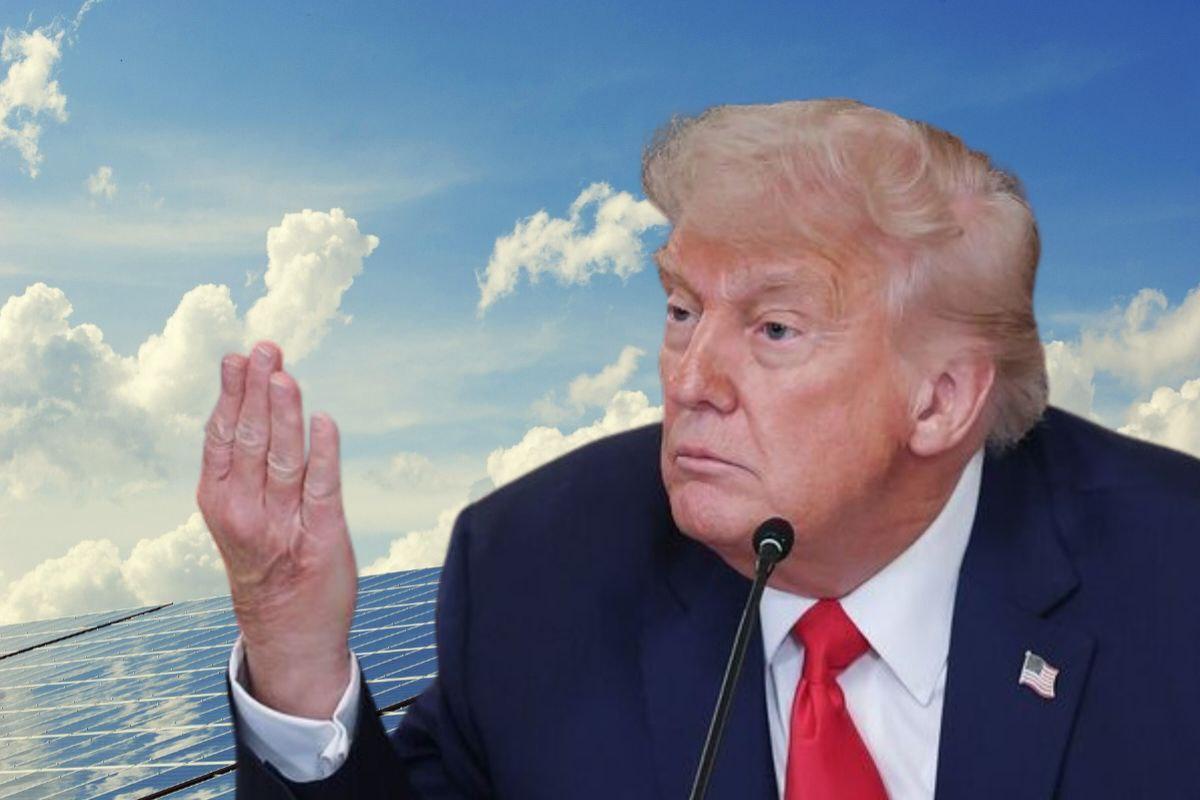
In Friday's trading session, the broader market was painted red, but the solar sector, in particular, bore the brunt of intense selling pressure. Companies involved in solar module manufacturing saw a sharp decline in their stock prices.
This was not due to domestic factors, but a significant development from the United States. Indian solar exporters, especially companies like Waaree Energies, Premier Energies, and Sterling & Wilson Solar, faced sudden bearish sentiment after a fresh petition was filed by US-based solar firms. The petition demands the imposition of anti-dumping duties on solar module imports from India.
What Exactly Happened?
On July 18, news broke that several solar companies in the US had formally requested the US government to impose tariffs on solar panel imports from India and other Asian nations. The accusation? Indian manufacturers are allegedly dumping low-cost goods into the US market and hurting domestic players.
The US firms submitted that Indian and Indonesian manufacturers are receiving unfair government subsidies, which allow them to produce solar modules at prices even lower than the cost of production. As a result, these companies are able to offer products in the US at unmatchable prices, capturing a significant share of the American solar market.
In response, these US players are urging the government to protect their industry by increasing anti-dumping duties on Indian products.
Why Are Indian Companies Worried?
For Indian solar panel makers, the US is a major export destination. Much of their revenue comes from the American market, just like Indian IT companies rely heavily on the US for business. If tariffs are increased, Indian solar modules would become more expensive in the US market, reducing their competitiveness.
That’s the biggest concern. If the request from US companies is accepted by the Trump administration, Indian companies could face:
- Margin contraction
- Shrinking export volumes
- Higher cost of doing business
- Possible exit from the US market
At present, no official announcement has been made by the US government. But the market is reacting to the uncertainty, and investors are fearing the worst.

Why Are US Companies Seeking Tariffs?
US-based solar manufacturers claim that overseas companies, especially those from Asia, are dumping low-priced solar panels into the US market. Their allegation is similar to how Indian steel companies accuse Chinese players of dumping cheap steel in India.
In this case, US manufacturers say Indian, Indonesian, and other Asian companies are selling panels at prices so low that domestic producers can’t compete. They argue that without additional duties, their own industry will collapse.
According to their complaint, these Asian manufacturers are heavily subsidized by their governments, enabling them to sell below production cost and still survive.
Historical Context: The April 2022 Precedent
If we look at past actions, this isn’t the first time the US has used high tariffs to protect its solar industry. In April 2022, the US imposed shocking levels of tariffs on solar imports from Southeast Asia.
Here are the highlights of that action:
- Some companies faced duties as high as 35%
- Countries impacted included Cambodia, Vietnam, Thailand, and Malaysia
- The lowest tariffs imposed were around 41%
- Cambodia faced the highest tariff levels
The reason was again the same: allegations of Chinese companies routing cheap solar products through Southeast Asian nations to bypass trade barriers.
If that kind of action is repeated against India, it could be devastating for Indian solar manufacturers.
What's Next?
For now, this is still a "petition" — not a formal policy. It remains to be seen whether the Trump administration acts on the request. But if history is any indicator, tariffs could very well be imposed.
Everything now depends on the US government's response. If they accept the petition and impose new tariffs, Indian solar companies will suffer further declines. On the other hand, if the petition is rejected, there could be a sharp rebound in solar stocks.
This is a classic "if-but" scenario and a non-controllable event from an investor’s standpoint.
If you follow solar companies like Waaree, Premier Energies, or Sterling & Wilson, this is a crucial time to stay updated. The outcome of this US tariff petition will have a direct impact on their financials and market performance.
The American market remains a vital revenue source for Indian solar firms. Any disruption in trade terms — especially one involving anti-dumping duties — could drastically alter their growth trajectory.




